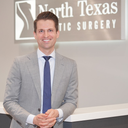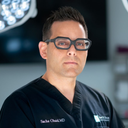Do surgeons usually follow up in person or have their nursing staff do it for them?
Do surgeon's usually follow up in person or have their nursing staff do it for them? Post tummy tuck, I never saw my surgeon and received no debriefing as to what happened during surgery (i.e. was there muscle repair, if so how extensive, was there a hernia and subsequent repair, etc...) I asked the nurse these questions but the weren't present for the procedure and couldn't confirm. My pre-op exam was only a few minutes , so details of what was to be done were not laid out prior.






